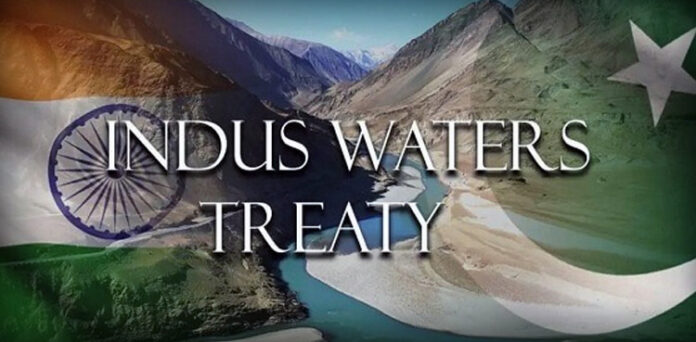India’s decision to suspend the Indus Waters Treaty has sparked major legal and diplomatic concerns. Experts say this move breaches international law and reflects a serious act of aggression. The step is being viewed as extreme, dangerous, and illegal under global norms.
Legally, India holds no right to cancel or pause the Indus Waters Treaty on its own. This river agreement, signed in 1960, is recognized worldwide. It was brokered by the World Bank, which also stands as its official guarantor.
According to Article 12(4) of the treaty, termination is only allowed through a mutual agreement. Both India and Pakistan must provide written consent to end it. There is no clause that allows any one country to withdraw or suspend it unilaterally.
The water-sharing pact was designed to last indefinitely. It does not tie its validity to war, politics, or any specific timeline. If India tries to halt it alone, this act becomes a direct violation of the treaty’s core terms.
When India talks of “annulment” or “withdrawal,” Pakistan sees it as a treaty breach. Suspending this Indo-Pak water accord could impact not just this one agreement but also raise doubts about India’s credibility in future global deals.
Stopping the flow of water to Pakistan could also trigger serious consequences. If India, as the upstream nation, blocks river flows, it breaks international water laws. This sets a risky example for other countries.
China, for instance, could follow India’s path. It might then justify blocking the Brahmaputra River flowing into India. This kind of move would shake the rules of international river usage and threaten regional balance.
So, this decision isn’t just a threat to Pakistan. It might hurt India too—both legally and strategically. Powerful nations like China are watching closely.
This bilateral river treaty has stood the test of time. It has survived wars and crises between India and Pakistan. That proves its strength and importance. The treaty also provides peaceful tools to solve disputes, like neutral experts and arbitration.
India’s suspension ignored these channels. It bypassed the Permanent Indus Commission and refused dialogue. That action clearly goes against the treaty’s spirit and design.
To date, no provision in the international water treaty allows for India to act alone. Any attempt to cancel, suspend, or violate the agreement not only breaks the law—it threatens long-standing diplomatic foundations.


